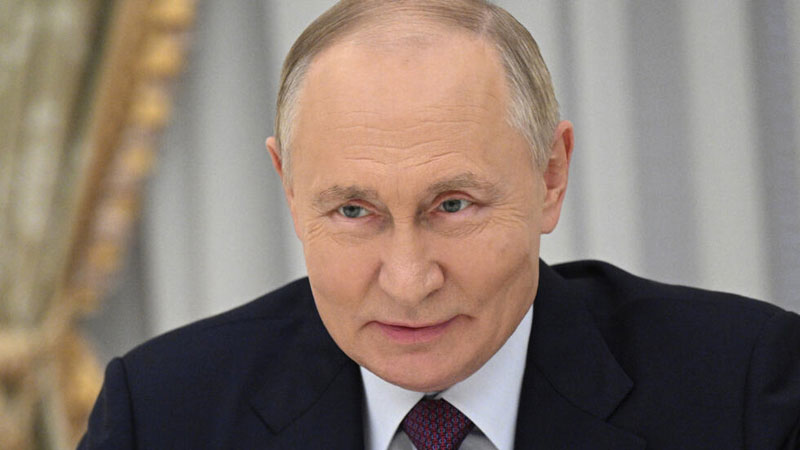Putin’s nuclear threats: empty rhetoric or a shift in battlefield strategy?


Is the world approaching the brink of nuclear disaster or is Putin merely bluffing when he talks about playing the nuclear card?
The significance of Putin’s September 25 statement is not easy to decipher. Ever since the start of the war in Ukraine, the Russian leader has repeatedly threatened to bring nuclear weapons into the conflict. So much so that the Bulletin of the Atomic Scientists – a journal on nuclear security and monitor of the Doomsday Clock – recently published yet another updated timeline of the many times Russia has escalated its nuclear talk. The first such threat can be traced to February 24, 2022 – the same day Russia launched its full-scale invasion of Ukraine.
Three new points
This time, however, the world seemed to pay more attention. In Britain, the BBC headlined with “Putin proposes new rules for using nuclear weapons” and US public broadcaster PBS declared that “Putin lowers nuclear response threshold”.
These reactions stemmed from the fact that Russia revised its nuclear doctrine to add three new points in conjunction with Putin’s speech, according to Ulrich Kuhn, head of the arms control and emerging technologies programme at the Institute for Peace Research and Security Policy at the University of Hamburg.
In his declaration at Russia’s Security Council, Putin said that Moscow now reserves the right to use nuclear weapons if an ally – i.e., Belarus – comes under attack.
For the first time, Putin also specified what types of attacks might trigger a Russian nuclear response, saying the scope will be widened to cover any attack that poses an “existential threat” to Russia. This means that large-scale drone attacks may join long-range ballistic missile attacks in being considered triggers.
Finally, Putin announced that any nuclear power (such as the UK, France or the United States) that is seen as supporting a non-nuclear power (such as Ukraine) in conventional attacks inside Russia will be held just as responsible as the attacker, and potentially trigger a nuclear response.
This means that the supporting country could become a target in itself, said Sarah Tzinieris, a specialist in international security and nuclear non-proliferation at King’s College in London.
“And not only would it be targeted, but it would also be potentially targeted with nuclear weapons,” she said.
This shift could quickly turn the war in Ukraine into a global conflict.
Declaration versus doctrine
But there are some important differences that separate Putin’s declarations and the actual nuclear doctrine, which stipulates exactly when, how and why Russia can use nuclear arms.
The first is that talk does not necessarily equal action.
“This doesn’t necessarily change anything strategically,” Tzinieris said. “This is very much about rhetoric.”
David Blagden, a senior lecturer in international security at Britain’s University of Exeter, agreed, noting that despite the tough language, Putin is probably not any closer to pressing the nuclear button than he was before.
“To an extent, all declaratory doctrine is just cheap talk … and in this instance, Russia making such a declaration neither increases Russian capabilities nor lessens NATO’s capability to deter,” he said.
“It remains just as true that – if Moscow responded to a NATO-backed conventional strike on Russia by escalating to nuclear use – NATO could do the same to Russia.”
Recent Posts
- Pakistan
Original documents only: NADRA bans CNIC photocopies at service centres
The National Database and Registration Authority (NADRA) has issued new guidelines for issuing CNICs to…
- Sports
DC vs KKR: Delhi relies on Rahul and Axar, KKR banking on Varun’s magic
Delhi Capitals (DC) will host Kolkata Knight Riders (KKR) in Match 48 of the ongoing…
- World
Senior BJP Subramanian Swamy urges Modi to resign over foreign policy failures
Senior BJP leader Subramanian Swamy has called for the resignation of Prime Minister Narendra Modi…
- Pakistan
PMD forecasts rainfall for Sindh amid ongoing heatwave
The Pakistan Meteorological Department (PMD) has forecast rain in parts of Sindh from May 2…
- Pakistan
IMF board to discuss Pakistan’s financial programmes on may 9
The International Monetary Fund (IMF) Executive Board is set to meet on May 9 to…
- Top Stories
DG ISPR to hold press conference amid rising tensions with India
Lieutenant General Ahmed Sharif Chaudhry, the Director-General of ISPR, will hold a key press conference…
Leave a Comment